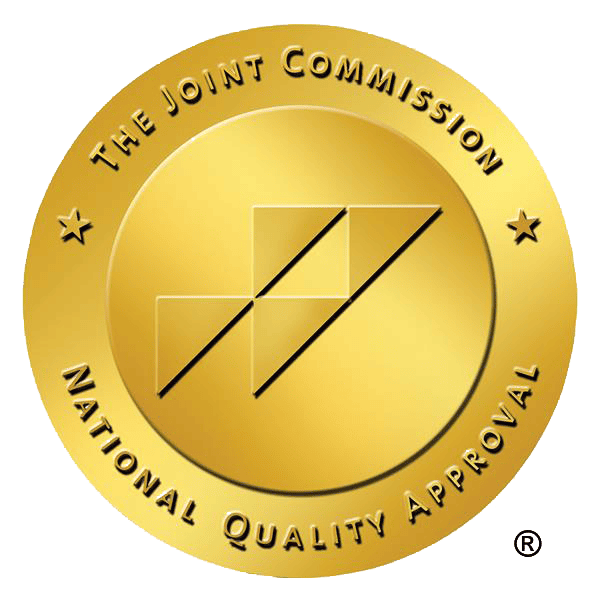Talking to a loved one about rehab can be a difficult and emotional conversation. It’s important to approach the topic with sensitivity, empathy, and understanding.
Learn how to broach the subject of rehab with your loved one in a supportive and caring manner. Remember that approaching this conversation with love and compassion can make all the difference in helping your loved one take steps toward recovery.
Approaching a Loved One About Rehab
Approaching a loved one about rehab can be a delicate and challenging process. Some tips for initiating this difficult discussion are:
- Choose the right time and place: Find a peaceful and private setting for honest, uninterrupted conversation.
- Express your concerns: Be honest about your observations of their behavior or struggles without appearing judgmental or accusatory.
- Actively listen: Allow your loved one to share their thoughts, feelings, and fears without interrupting or dismissing them.
- Offer hope and reassurance: Remind them that seeking help is courageous and can lead to healing, recovery, and a brighter future.
- Provide resources: Offer information on rehab facilities that could help them take the first step on their recovery journey.
- Offer your support: Let them know you will be for them at every step, whether attending appointments, providing emotional support, or simply listening.
Denial and Rehab Refusal
While not desirable, denial and rehab refusal is possible when talking to a loved one about rehab. The decision to seek help and go to rehab is up to your loved one. Be patient and understanding if they need time to realize they need help.
Instead, you should take the time to learn more about addiction and how you can establish boundaries without enabling your addiction. Additionally, you may want to consider speaking to an interventionist.
Signs of Addiction
Signs of addiction can vary depending on the substance, amount used, frequency of use, and duration. Some common signs of addiction include:
- Increased secrecy and lying about their activities
- Changes in mood or behavior, such as irritability, agitation, or paranoia
- Neglecting responsibilities at work, school, or home
- Sudden changes in social circles or isolation from family and friends
- Financial issues
- Physical symptoms such as weight loss/gain, bloodshot eyes, sweating, jitteriness
- Continual use of substances despite negative consequences
- Lack of personal hygiene
- Changes in sleep patterns like insomnia or excessive sleeping
Talking to a Loved One About Rehab
Deciding when it is time to talk to a loved one about rehab can be complex and challenging. You should consider speaking to them when their substance use is causing harm to themselves or others.
Speak to them if their addiction is directly impacting you and your family, such as affecting relationships and financial stability. It is equally concerning if their mental health deteriorates and they withdraw from friends and family.
Don’t Force Them
It is not uncommon for your loved one to now want to talk about their addiction. It is important not to force them into confronting their addiction when they are not ready. Making ultimatums of them can push them further away and worsen their addiction.
Stick to the Facts But Have Compassion
It is essential not to come across as attacking when confronting your loved one about their addiction. You want to stick to the facts about their behavior. You should also use “I” statements when discussing how their addiction impacts you.
Most importantly, remember your loved one is struggling with a disease. As such, you need to show compassion and support if you want them to consider seeking help at some point.
Explore Rehab Programs
Part of the reluctance of your loved one to admit they need rehab could be due to their lack of understanding of rehab.
They may think that their only option is an inpatient residential treatment program where they have to remain at the facility for treatment. However, other options exist, such as IOP, PHP, and OP.
IOP vs. PHP vs. OP
Intensive outpatient programs (IOPs) provide a highly structured treatment program. Your loved one would attend sessions during the day and be allowed to return home at night. There is some flexibility to allow them to manage certain commitments and responsibilities.
Partial hospitalization programs (PHPs) are a step down from inpatient or residential rehab. They provide intensive, structured treatment during the day. In the evenings, your loved one can return home. However, there is less flexibility regarding work and other family commitments during the day.
Outpatient programs (OPs) are a step down from IOPs. They are for people with mild addictions who have commitments but still desire to address their addiction. They attend treatment sessions several times weekly at a time that works best for their schedule.
Dealing with Pushback
Dealing with continued pushback from a loved one who is resistant to the idea of rehab can be frustrating and challenging. Understand that change takes time, and your loved one may need time to come to terms with seeking help. Keep the lines of communication open while gently encouraging them to consider rehab as an option.
It’s important to set boundaries and communicate your needs while also following through on consequences. Managing pushback from a loved one can be emotionally taxing. Make sure to prioritize self-care and seek support from friends, family members, or a support group. Lastly, be prepared to walk away from the relationship if it becomes too much for you to handle.
Funding Rehab
There are several different options for funding rehab treatment. Many insurance plans provide coverage for addiction treatment programs. Some employers also offer financial support for addiction treatment.
Another option to consider is grants available through various nonprofit organizations. Some treatment facilities may even offer payment plans or provide access to special financing programs.
Family Therapy for Coping with a Loved One in Rehab
Family therapy provides education on addiction, recovery, and relapse prevention strategies. It helps family members better understand their loved one’s struggles and their rehab challenges. Therapy sessions help improve communication among family members, teaching effective ways to express emotions, set boundaries, and resolve conflicts constructively.
It also offers a supportive environment where family members share experiences, concerns, and feelings related to their loved one’s addiction. Therapists even help families establish healthy boundaries with their loved ones.
Get Help Talking to Your Loved One About Rehab in Austin, TX
You are not alone when you need help talking to your loved one about rehab. The Prairie Recovery Center in Austin, Texas can help provide support and guidance.
We will work alongside you no matter how long it takes to get your loved one into rehab. Our supportive and caring team is here for you and your loved one.
Contact us today to get the help you need and encourage your loved one to start their recovery journey.









